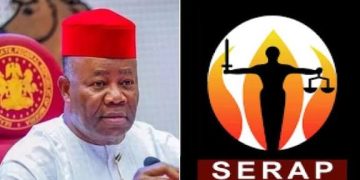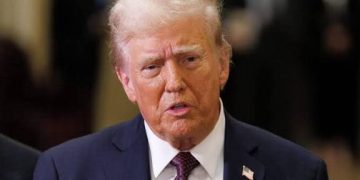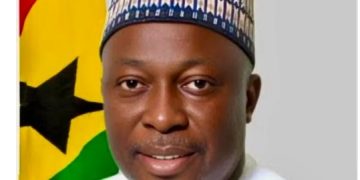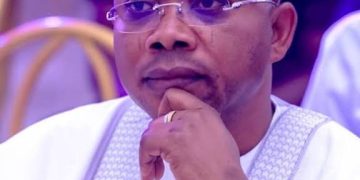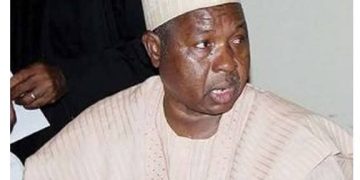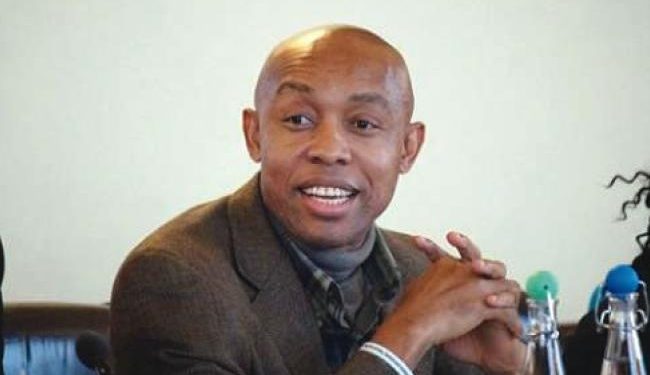Among the doctrines that underpin the legal process in Nigeria, few are as profound and pervasive as judicial independence, but no doctrine in the ecosystem of the law rivals its elusiveness. The idea is ubiquitous in the syllabus of every programme leading to the award of a degree in law, in political science or public administration. After leaving the university, the practitioner will encounter it regularly in conferences and in after-dinner speeches.
Judicial independence is more than the stuff of law faculties and after-dinner fares. It is a fundamental human right in Nigeria. Indeed, the guarantee of the right to fair trial in section 36(1) of Nigeria’s constitution requires that every court should be “constituted in such a manner as to secure its independence and impartiality.”
Judges have a notional obligation to uphold it. The Code of Conduct for Judicial Officers in Nigeria contains five mentions of the words “independent” or “independence” and obligates them to observe “a high standard of conduct so that the integrity and respect for the independence the judiciary may be preserved.”
Despite the repetitive and obligatory genuflections before its shrine, however, few people take even appearances of judicial independence seriously, and many are these days happy to advertise undisguised ridicule for it.
Take for instance what happened last week. On 29 October, a leading national newspaper ran the headline: “FIRS, Judiciary Strengthen Collaboration on Emerging Tax Laws.” It would have been easy to disregard it as the handiwork of a distracted or mis-informed reported. The reportage, however, belied that.
The National Judicial Institute (NJI) had organized what it called “a capacity-building workshop for Justices of the Supreme Court, Court of Appeal, and Judges of the Federal High Court on (Nigeria’s) new tax law.” Effectively, this was a training for the most senior and most influential judges in Nigeria.
Established in 1991, the NJI is the statutory body responsible for continuing studies or judicial education by judges and magistrates in Nigeria. It is headed by an Administrator, who is a retired senior judge and operates under the governance of a board chaired by the Chief Justice of Nigeria (CJN). The Board approves all of its activities, including conferences, workshops, and trainings.
The NJI is funded by appropriations from the National Assembly but it also can receive sponsorships sometimes for its activities. The sums had not yet been disclosed at the time of writing but credible reports appear to indicate that the Federal Board of Inland Revenue (FIRS) substantially sponsored this latest training on the new tax laws. It is suggested, however, that the sponsorship was generous.
One of the headline speakers at that training for these most senior judges in Nigeria was the Executive Chairman of the Federal Inland Revenue Service (FIRS), who happens to share the same first name as the infamous tax collector in the Christian Holy Book. To minimize the association with its Biblical forebear, the name this time is stylized to “Zacch”. In his address, Executive Chairman, Zaccheus, called “for deeper collaboration between the judiciary and tax authorities to ensure fair interpretation and enforcement.”
The call for collaboration of any sort, whether deep or shallow, between judges and anybody or institution clearly misapprehends the mission of the judiciary or invites them to be nobbled for value. It is not immediately clear if the judges had any response for Zaccheus on this occasion. There, however, is evidence on the basis of previous conduct which offers us some clues.
This is far from a first in recent times for a senior public official to seek to corrupt the judiciary under the guise of seeking their collaboration. In his memoirs, The Accidental Public Servant, former Minister of the Federal Capital Territory and immediate past Governor of Kaduna State, Nasir el-Rufai, proudly tells the story of how as minister two decades ago, he led his staff to meet his High School senior, Lawal Hassan Gummi, who served in his time as Chief Judge of the High Court of the Federal Capital Territory.
Following that meeting, he gloated, “the FCT judiciary supported us strongly throughout my tenure.” The manner of the support is clear from the fact that it subsequently became nearly impossible to secure any orders against the FCT administration while those two were in office. The few cases that escaped this institutionalized nobbling did not survive to enforcement.
Two years ago, in November 2023, the incumbent Chief Judge of the Federal Capital Territory, Husseini Baba Yusuf, led the Bench of his court to the office of Nasir el-Rufai’s current successor as the Minister of the FCT, Nyesom Wike. At the meeting, the Chief Judge reminded the Minister that “as a judiciary we are part of the government and we expect that we should be able to do things that should make government work….”
As an act of prostitution of judicial powers, it is impossible to beat this. He did not have to wait too long to make good on this institutional willingness to be at the equestrian beck and call of the FCT Minister. When the FCT High Court filled judicial vacancies on its bench in the first quarter of 2024, they dutifully allocated one out of the twelve new vacancies on offer to the FCT Minister, to which he promptly deputed his sister-in-law.
This is far from the only way in which the politicians ensure that the courts are no longer constituted or able to fulfill the basic constitutional requirement of independence.
In July 2022 apparently, as he swore in a new Chief Judgefor the state, Imo State Governor, Hope Uzodinma, at the same time procured the State House of Assembly to amend the High Court Law. Under the new amendment, where there is no substantive Chief Judge, the power to manage and assign cases in the High Court is transferred from the most senior judge (who is supposed to act until a new Chief Judge is appointed) to the Chief Registrar of the High Court.
There are well-founded suspicions that this amendment was procured a little more recently but backdated to 2022 to make it look older than it is in order to amputate the judicial role of the recently sworn-in Acting Chief Judge, Ijeoma Ogugua, whom the governor has been entirely unenthusiastic to allow into the role. The Acting Chief Judge functions under the authority of the National Judicial Council (NJC), in whose composition the Governor has no role.
By contrast, the Chief Registrar is appointed by the State Judicial Service Commission whose members are entirely beholden to the State Governor. In other words, by depriving the Chief Judge of the power over judicial dockets and case assignment and transferring it to the Chief Registrar, the Governor effectively makes himself the owner, controller, and manager of all cases filed in the High Court of Imo State.
This is an arrangement that makes the life of the Chief Registrar unbearable and that of the Acting Chief Judge untenable. Almost assuredly, it is also manifestly unconstitutional.
Unconstitutional is, however, not a standard that necessarily or at all bothers these peddlers of political roguery. In their books, the judges are there to be massaged in public and ransacked in private. Preachments about judicial independence are there to impress law students, pre-occupy their teachers, and distract the un-initiated. Sadly, the current leadership of the judiciary at various levels at both state and federal levels have been complicit partners in this very political ravishing of their institutional virtues.
Increasingly, doctrines of judicial independence serve only one purpose: to render the judges independent of accountability for breaching it. The value of judicial independence, rather ironically, now lies in the absence of accountability for publicly flouting it.
A lawyer and a teacher, Odinkalu can be reached at chidi.odinkalu@tufts.edu

